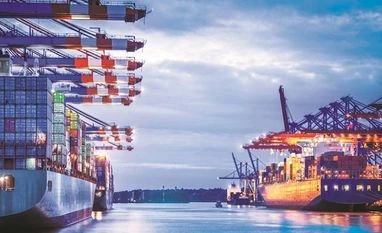Against our exports, the buyer has pre-paid the usance bill after deducting interest for the unexpired usance period. Will it be treated as a shortfall in export realisation under FEMA?
No. Para C.16 of the RBI Master Direction no. 16/2015-16 dated January 1, 2016 (as amended), on export of goods and services says that occasionally, exporters may approach AD Category-I banks for reduction in invoice value on account of cash discount to overseas buyers for prepayment of the usance bills. AD Category-I banks may allow cash discount to the extent of amount of proportionate interest on the unexpired period of usance, calculated at the rate of interest stipulated in the export contract or at the prime rate/LIBOR of the currency of invoice, where rate of interest is not stipulated in the contract.
A startup aviation company had made advance non-refundable remittances for import of aircraft for operating regional connectivity. Due to non-cooperation from regulators and sudden death of the promoter, the airline did not take off. Can the company apply to RBI for write-off of these remittances? If so, what are the formalities? The company remitted to reputed lessors and manufacturers of aircraft and has not borrowed any amount for this.
Para C.1.3 of RBI Master Direction no.16/2015-16 dated January 1, 2016 (as amended), deals with advance remittance for import of aircraft/helicopters and other aviation-related purchases. There are many conditions and one is that in the event of non-import of aircraft and aviation sector-related products, the AD Category-I bank should ensure that the amount of advance remittance is immediately repatriated to India.
It is not clear how you overlooked this condition when you made a contract for non-refundable advance payment and how your bankers missed this point when they allowed the remittance. Anyway, now you have no option but to approach the RBI and explain your position. There are no specific formalities except that you must approach the jurisdictional RBI office through your bankers.
Can a seller on the high seas source with a higher credit period from a foreign supplier and take immediate payment from the high seas buyer? Also, can an Indian importer place a high seas purchase order before one year of buying? After GST, does it have any relevance?
The high seas seller must be compliant with Para B.5 of the RBI Master Direction no.17/2016-17 dated January 1, 2016 (as amended), on import of goods and services, which deals with the time limit for settlement of import payments. There is no stipulation on when the high seas buyer and seller must enter into a contract or agreement, but the actual high seas sale-purchase transaction must take place when the goods are on the high seas. High seas sale transactions are treated neither as supply of goods nor services at S.No.8(b) of Schedule III of the CGST Act, 2017.
Is anti-dumping duty leviable on capital goods imported under EPCG authorisation?










)

